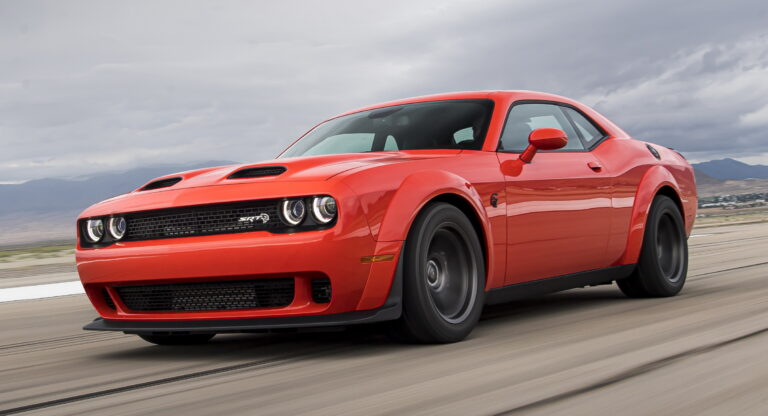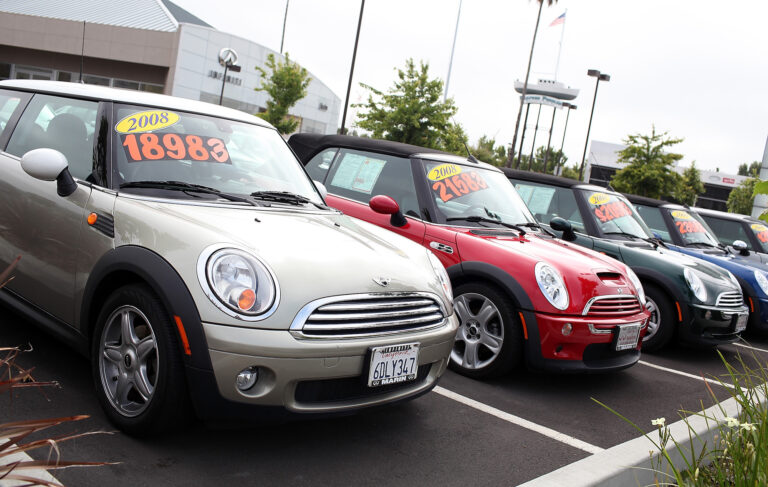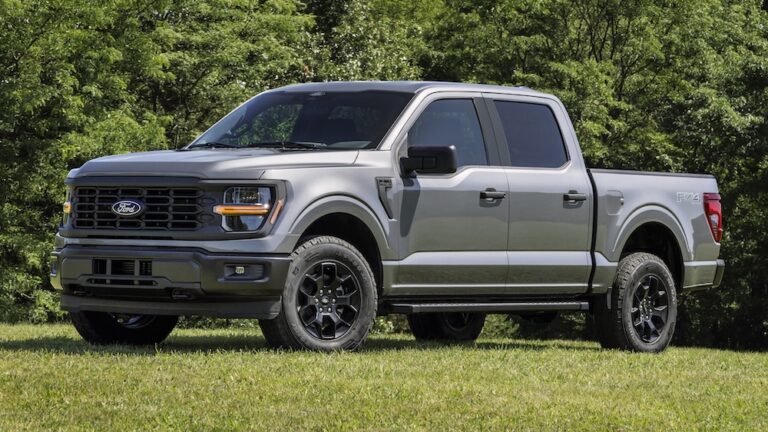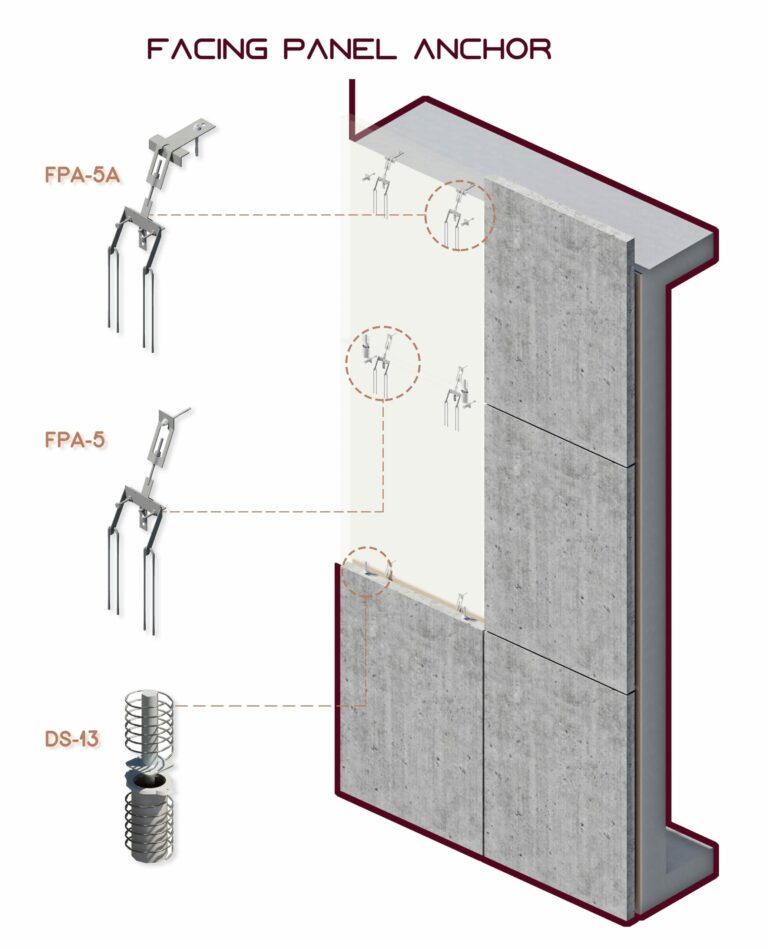Chinese Sports Car Brands: Igniting the Future of Performance
Chinese Sports Car Brands: Igniting the Future of Performance cars.truckstrend.com
For decades, the global sports car arena has been dominated by established marques from Europe, North America, and Japan. Their roaring engines, iconic designs, and rich racing pedigrees have defined automotive exhilaration. However, a seismic shift is underway, quietly but powerfully, as Chinese sports car brands emerge as serious contenders, redefining performance for the electric age. This article delves into the fascinating world of Chinese sports car brands, exploring their rapid rise, technological prowess, key players, and the exciting future they promise.
Chinese sports car brands are not merely building fast cars; they are crafting high-performance electric vehicles (EVs) that embody cutting-edge technology, sophisticated design, and an unwavering commitment to innovation. Driven by robust government support for electrification, a massive domestic market hungry for premium products, and an influx of top-tier talent, these brands are rapidly evolving from mere imitators to groundbreaking innovators. They represent China’s ambition to lead the automotive industry, particularly in the realm of intelligent, high-performance electric mobility, challenging the status quo and offering a fresh perspective on what a sports car can be.
Chinese Sports Car Brands: Igniting the Future of Performance
The Ascent of Chinese Sports Cars: From Niche to Global Contender
The journey of Chinese automotive brands into the high-performance segment is a relatively recent but remarkably rapid one. Historically, Chinese manufacturers focused on mass-market, affordable vehicles, often relying on foreign joint ventures for technology transfer. The notion of a "Chinese sports car" was, for a long time, an anomaly, if not a punchline.
However, the advent of electric vehicle technology provided a unique opportunity for China to leapfrog traditional internal combustion engine (ICE) development. With fewer legacy constraints and immense capital investment, Chinese companies poured resources into EV research and development, quickly mastering battery technology, electric powertrains, and advanced software. This strategic pivot allowed them to bypass decades of ICE-specific expertise held by Western rivals and focus directly on the future of automotive performance: electric power.
Today, Chinese sports car brands are characterized by several key trends:
- Electric Dominance: Almost all new high-performance offerings are purely electric, leveraging the instant torque and silent power of EVs.
- Technology Integration: They are pioneers in integrating advanced autonomous driving features, sophisticated infotainment systems, and over-the-air (OTA) updates.
- Distinctive Design: Moving away from derivative designs, many brands are now forging unique aesthetic identities, often blending futuristic elements with elegant lines.
- Performance Focus: From blistering acceleration figures to advanced chassis tuning, these vehicles are engineered for true driving exhilaration.
- Global Ambition: While the domestic market remains crucial, many brands harbor aspirations for international expansion, bringing their unique blend of performance and technology to the world stage.
Key Players in the Chinese Sports Car Arena
The landscape of Chinese sports car brands is dynamic, with new entrants and established players continuously pushing boundaries. Here are some of the most prominent names making waves:
- Nio: Often dubbed the "Tesla of China," Nio is a premium EV manufacturer with a strong focus on performance and user experience. Their EP9 electric hypercar, launched in 2016, famously set track records at the Nürburgring Nordschleife and Circuit of the Americas, immediately signaling Nio’s performance ambitions. While the EP9 was a limited-production halo car, Nio’s production models like the ET5 and ET7 sedans offer impressive acceleration (0-100 km/h in around 3.8 seconds for top trims) and sophisticated driving dynamics, cementing their place as sporty luxury EVs.
- BYD (Yangwang & Denza): As the world’s largest EV manufacturer, BYD’s foray into high-performance vehicles through its luxury sub-brands is significant.
- Yangwang: This ultra-luxury brand showcases BYD’s pinnacle of technology. The Yangwang U9 is an all-electric supercar that boasts a revolutionary DiSus-X intelligent body control system, allowing it to "dance" and even drive on three wheels. With over 1,300 horsepower, its 0-100 km/h time is a mind-boggling 2 seconds.
- Denza: A joint venture with Mercedes-Benz, Denza focuses on premium intelligent EVs. The Denza Z9 GT is a sleek, high-performance shooting brake with a powerful tri-motor setup, positioning it as a sporty luxury contender.
- Human Horizons (HiPhi): HiPhi is known for its avant-garde design and cutting-edge technology. The HiPhi Z is a "digital GT" sedan with a futuristic aesthetic, adaptive rear-hinged doors, and a robotically controlled infotainment screen. Its dual-motor powertrain delivers rapid acceleration (0-100 km/h in 3.8 seconds), making it a high-tech performance statement.
- Zeekr: Geely’s premium electric mobility brand, Zeekr, has quickly gained recognition for its performance-oriented vehicles. The Zeekr 001 is a sleek shooting brake that combines practicality with exhilarating performance, offering 0-100 km/h times as low as 3.3 seconds for its high-performance variants. The newer Zeekr 007 sedan also offers blistering acceleration and advanced technology, further solidifying Zeekr’s sporty credentials.
- MG (SAIC): While MG is a historic British brand, it is now owned by China’s SAIC Motor. The return of the iconic roadster with the MG Cyberster is a major statement. This all-electric two-seater convertible combines classic sports car proportions with futuristic EV technology, offering impressive power and range, aiming to recapture the spirit of open-top driving for the electric age.
- GAC Aion (Hyper): GAC Aion, the EV arm of GAC Group, has launched its high-end "Hyper" brand specifically for performance vehicles. The Hyper SSR is a stunning all-electric supercar, boasting over 1,200 horsepower and an astonishing 0-100 km/h time of just 1.9 seconds, making it one of the fastest accelerating production cars globally. The Hyper GT is a sleek, performance-oriented sedan with unique design elements like scissor doors.
- Xpeng: Xpeng is known for its intelligent EVs, but their vehicles also offer significant performance. The Xpeng P7 sedan, particularly in its Wing Edition, combines a sleek coupe-like silhouette with powerful electric motors, delivering 0-100 km/h in around 4 seconds for its performance variants, making it a strong competitor in the sporty EV sedan segment.
Technological Prowess and Innovation
The core strength of Chinese sports car brands lies in their relentless pursuit of technological innovation, particularly in electric powertrains and intelligent systems.
- Electric Powertrain Mastery: Chinese manufacturers have invested heavily in developing high-performance electric motors, advanced battery packs, and efficient power electronics. This results in vehicles with astounding horsepower figures, instantaneous torque delivery, and rapid acceleration that often outpace traditional ICE sports cars. Many brands utilize sophisticated multi-motor setups for all-wheel drive and advanced torque vectoring.
- Battery Technology: Beyond just capacity, Chinese brands are innovating in battery chemistry (e.g., blade batteries, integrated chassis batteries), thermal management, and charging speeds. Nio’s unique battery swap technology offers a distinct advantage, allowing for a full "refuel" in minutes.
- Intelligent Systems: These vehicles are not just fast; they are smart. They feature advanced driver-assistance systems (ADAS) often with LiDAR integration, sophisticated voice control, expansive infotainment screens, and seamless connectivity. Over-the-air (OTA) updates ensure that the vehicle’s software and even performance capabilities can be continuously improved.
- Aerodynamics and Lightweighting: Many Chinese sports cars incorporate advanced aerodynamic designs, active aero elements, and lightweight materials like carbon fiber to enhance performance, efficiency, and handling.
- Design Language: While technology drives performance, design captivates. Chinese brands are developing distinctive design languages, often characterized by clean lines, futuristic lighting signatures, and innovative interior layouts that prioritize digital integration and premium materials.
Challenges and Opportunities
Despite their impressive progress, Chinese sports car brands face several challenges:
- Brand Perception: Overcoming the lingering perception of "Made in China" being synonymous with lower quality or imitation remains a hurdle in global markets. Building trust and reputation takes time.
- Global Competition: They are entering a fiercely competitive market dominated by legacy brands with established dealer networks, service infrastructures, and loyal customer bases.
- Export Logistics and Regulations: Navigating diverse international regulations, certification processes, and establishing robust sales and service networks abroad is complex and costly.
- Resale Value: As new entrants, the long-term resale value of Chinese sports cars is yet to be fully established, which can be a concern for buyers.
However, the opportunities are equally compelling:
- Massive Domestic Market: China is the world’s largest automotive market, particularly for EVs, providing a strong base for growth and testing new technologies.
- Government Support: Strong governmental policies promoting EV adoption and domestic innovation provide a significant competitive advantage.
- Technological Leapfrogging: The focus on EVs allows them to bypass the legacy of ICE technology, potentially leading to more rapid advancements.
- Cost Efficiencies: Leveraging China’s manufacturing ecosystem, some brands can achieve competitive pricing while offering high levels of technology and performance.
- Attracting Global Talent: Chinese brands are increasingly attracting top design, engineering, and management talent from around the world.
Practical Advice for Considering a Chinese Sports Car
If you’re considering a high-performance vehicle from a Chinese brand, here’s some practical advice:
- Do Your Research: Thoroughly investigate specific models, their performance specifications, battery technology, and charging capabilities. Read reviews from reputable automotive journalists and early adopters.
- Evaluate After-Sales Support: For new brands, particularly outside of China, inquire about the warranty, service network, and availability of spare parts. This is crucial for long-term ownership.
- Test Drive Extensively: Performance figures on paper are one thing; real-world driving dynamics are another. Test drive the vehicle to assess its handling, ride comfort, build quality, and user interface.
- Understand the Technology: Familiarize yourself with the vehicle’s advanced driver-assistance systems, infotainment, and connectivity features. Ensure they align with your preferences.
- Consider Charging Infrastructure: While fast charging is becoming more widespread, ensure your local infrastructure supports the vehicle’s charging standards and speed.
- Resale Value Expectations: Be aware that as newer brands, their resale values might be more volatile than established brands. If this is a concern, consider leasing or understand potential depreciation.
Estimated Price Table for Key Chinese Sports Car Models
Please note that prices are estimates, primarily based on the Chinese domestic market (CNY) and may vary significantly due to trim levels, options, exchange rates, and regional taxes if exported. "0-100 km/h" refers to the fastest production variant.
| Brand | Model | Type | Powertrain | 0-100 km/h (sec) | Range (CLTC/WLTP est.) | Est. Starting Price (CNY) | Est. Starting Price (USD equiv.) |
|---|---|---|---|---|---|---|---|
| Nio | ET5 | Performance Sedan | Electric | 4.0 | 550-710 km | ¥298,000 | $41,000 |
| ET7 | Performance Sedan | Electric | 3.8 | 675-1000 km | ¥428,000 | $59,000 | |
| BYD | Yangwang U9 | Electric Hypercar | Electric | 2.0 | ~450 km | ¥1,680,000 | $230,000 |
| Denza Z9 GT | Sporty Shooting Brake | Electric | ~2.9 | ~600-700 km | ¥400,000 (est.) | $55,000 (est.) | |
| HiPhi | HiPhi Z | Digital GT Sedan | Electric | 3.8 | ~655 km | ¥510,000 | $70,000 |
| Zeekr | 001 | Performance Shooting Brake | Electric | 3.3 | 606-1030 km | ¥269,000 | $37,000 |
| 007 | Performance Sedan | Electric | 2.84 | 688-870 km | ¥209,900 | $29,000 | |
| MG | Cyberster | Electric Roadster | Electric | 3.2 | ~580 km (CLTC) | ¥319,800 | $44,000 |
| GAC Aion | Hyper SSR | Electric Supercar | Electric | 1.9 | ~506 km (CLTC) | ¥1,286,000 | $177,000 |
| Hyper GT | Performance Sedan | Electric | 4.9 | 560-710 km | ¥219,900 | $30,000 | |
| Xpeng | P7 Performance | Sporty Sedan | Electric | 4.3 | 610-702 km | ¥239,900 | $33,000 |
Note: USD equivalents are approximate conversions based on current exchange rates and do not include potential import duties, taxes, or shipping costs for international markets.
Frequently Asked Questions (FAQ)
Q1: Are Chinese sports cars reliable?
A1: While historically there were concerns, modern Chinese EV brands have significantly improved their quality and reliability, often matching or exceeding global standards. They utilize advanced manufacturing processes and robust testing. However, as with any new technology, long-term data for some newer models is still accumulating.
Q2: Are these brands available outside of China?
A2: Some brands like Nio, Zeekr, and MG (Cyberster) are actively expanding into European and other international markets. Others, like Yangwang and HiPhi, are currently more focused on the domestic market but have global ambitions. Availability varies by region.
Q3: How do Chinese sports cars compare to Western sports cars?
A3: In terms of raw performance (acceleration, horsepower), many Chinese electric sports cars are highly competitive, often outperforming similarly priced ICE vehicles. They excel in technology integration, digital cockpits, and smart features. Established Western brands often have a longer heritage, more refined driving dynamics honed over decades, and a larger global service network, but the gap is rapidly closing.
Q4: What is the main focus of Chinese sports car brands – speed, luxury, or technology?
A4: They aim for a holistic package. While blistering speed and performance are fundamental, there’s a strong emphasis on integrating cutting-edge technology (intelligent driving, advanced infotainment) and providing a luxurious, futuristic user experience. They are redefining luxury for the digital age.
Q5: What are the biggest advantages of buying a Chinese sports car?
A5: Key advantages include cutting-edge EV technology (powertrains, batteries), often competitive pricing for the level of performance and features offered, advanced intelligent systems, and distinct, modern designs. Many also benefit from strong ecosystem support in China (e.g., Nio’s battery swap).
Q6: What are the biggest challenges for these brands?
A6: Overcoming brand perception issues outside China, building robust global sales and service networks, and competing with the established brand loyalty of traditional automakers are significant challenges. Long-term resale value is also an evolving factor.
Conclusion
The emergence of Chinese sports car brands marks a pivotal moment in automotive history. No longer content with merely being a manufacturing powerhouse, China is now asserting itself as a hub of innovation, design, and high-performance vehicle development. Brands like Nio, BYD’s Yangwang, HiPhi, and Zeekr are not just building cars; they are crafting experiences that blend breathtaking speed with intelligent technology and forward-thinking design.
While challenges remain, the sheer pace of their development, coupled with robust investment and a strategic focus on electric mobility, positions these brands as formidable contenders on the global stage. They are not just participating in the future of performance; they are actively shaping it, offering a compelling glimpse into a world where exhilaration is defined by silent, electrifying power and intelligent connectivity. The roaring future of sports cars might just be humming with a distinctively Chinese accent.





